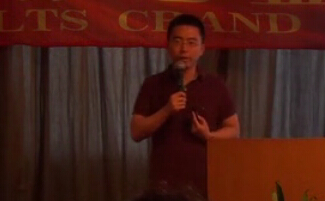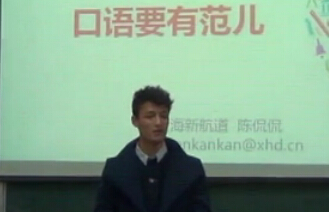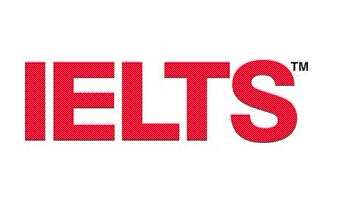雅思阅读之帆船集团
2013-08-04 13:19 供稿单位: 新航道
出国英语考试有哪些 雅思6.5是什么水平 雅思阅读评分标准 托福阅读评分标准 雅思和托福的区别
The Galleon trial
Rajaratnam guilty as charged
IN A phone call recorded by the government in 2008, Raj Rajaratnam, the boss of Galleon Group, a large hedge fund, called Danielle Chiesi, an executive at another fund, to thank her for sharing a tip. “But it’s a conquest, right?” he asks her. “It’s a conquest,” she responds. “You’re a warrior. I’m a warrior.”
On May 11th Mr Rajaratnam lost the battle he was fighting against government prosecutors. He was convicted on 14 counts of securities fraud and conspiracy, and faces up to 205 years in prison when he is sentenced in July. A New York jury found that Mr Rajaratnam made nearly $64m from trading based on tips he ferreted out from a network of corporate executives and traders about firms like Goldman Sachs, Google and Intel. He rewarded them generously for confidential information. He paid Anil Kumar, then an executive at McKinsey, $500,000 a year for tips about the firm’s clients, for example.
This is the first insider-trading case in which the government has used wiretaps, and they were pivotal in Mr Rajaratnam’s conviction. The jury heard dozens of conversations that showed him as foul-mouthed, boastful and conniving. In one Mr Rajaratnam and his brother, Rengan, talk about getting another McKinsey executive to leak information. “Everybody is a scumbag,” says Rengan, and they laugh.
Mr Rajaratnam, a risk-taker in his trading, took the same approach to fighting the government’s charges against him. He hired a public-relations manager to set up a website, rajdefense.org, which attacked supposedly biased news articles and posted documents relevant to his case. His lawyers argued that the information Mr Rajaratnam traded on was publicly available, pointing to news reports that speculated about upcoming deals and results.
But it proved impossible to distract the jury from what was said in those calls. The defence case also stumbled when Rick Schutte, a former Galleon president who testified that Mr Rajaratnam was just a meticulous researcher, revealed under questioning that Mr Rajaratnam and his family had invested $25m in his new hedge fund.
A glimpse inside
The trial afforded a glimpse inside what used to be one of the industry’s largest and most respected funds. Galleon, which managed $6.5 billion at its peak, gathered staff every morning at a meeting, and employees were fined if they were late. Analysts and portfolio managers had to circulate weekly reports with their best trading ideas. Mr Rajaratnam sat in front of six computer screens during the day. Internal instant messages, e-mails and company documents revealed an intense and competitive culture that blended legitimate research with illegally obtained tips.
Mr Rajaratnam’s lawyer says he will appeal against his conviction. Providing it stands, the verdict will be an important victory for emboldened prosecutors, who are making insider trading and market abuse a priority. Enforcement of insider-trading law tends to go up after periods of market stress, according to Laura Beny, a professor at the University of Michigan Law School. In the past 18 months, the US Attorney’s Office has charged 47 people with insider trading. Mr Rajaratnam is the 35th to be convicted.
“A long-term full-court press to root out insider trading in the hedge-fund business” is how Janice Fedarcyk, an assistant director at the Federal Bureau of Investigation, has described the government’s ambitions. Robert Khuzami, director of enforcement at the Securities and Exchange Commission (SEC), says it will target hedge funds for “aberrational” performance, which he considers to be outperforming the market consistently by 3%.
Edgy hedgies
Hedge-fund executives, gathering in Las Vegas for an industry event, are not pleased with all the attention they’re getting. More unflattering headlines are likely. The government has already arrested several other hedge-fund managers, including two former portfolio managers at SAC Capital, one of the industry’s largest funds, as part of a crackdown on the use of “expert network” firms, which link hedge funds with company executives. Another Galleon employee, Zvi Goffer, who attended Mr Rajaratnam’s trial, has been charged with insider trading, and will stand trial later this month.
It is not just hedge funds that will feel the fallout from Galleon. The case ensnared executives and board members at companies like McKinsey, Intel, Goldman Sachs, Moody’s and IBM. This will lead companies to rethink their insider-trading and compliance policies. The biggest fish to be caught up in the mess so far is Rajat Gupta, a former board member of Goldman Sachs and ex-boss of McKinsey, who has been charged by the SEC in an administrative proceeding for allegedly passing tips to Mr Rajaratnam. Mr Gupta has sued the SEC and is asking to stand trial in front of a jury. He may reconsider now that he has seen Mr Rajaratnam’s fate.

- 新航道,英语成功之道。时间获取新航道英语学习资料和新鲜资讯,请在微信公众账号中搜索「新航道英语」或者「xhdenglish」,或用手机扫描左方二维码,即可获得新航道每日精华内容推送和英语学习经验分享,并参与新航道举办的各项活动。
精彩专题
更多视频荟萃
更多
-
新航道姚骏鹏-雅思阅读高分攻略
时长:03-06

-
新航道陈侃侃-雅思口语要有范儿
时长:03-06

-
【3分钟学雅思】王大锤告诉你为啥药不能停
时长:01-12

-
【3分钟学雅思】全世界个感官餐厅
时长:01-12
热门文章
更多
-
8月31日雅思广州考机考初体验
选择机考模式的考生将通过机考模式参加听...








